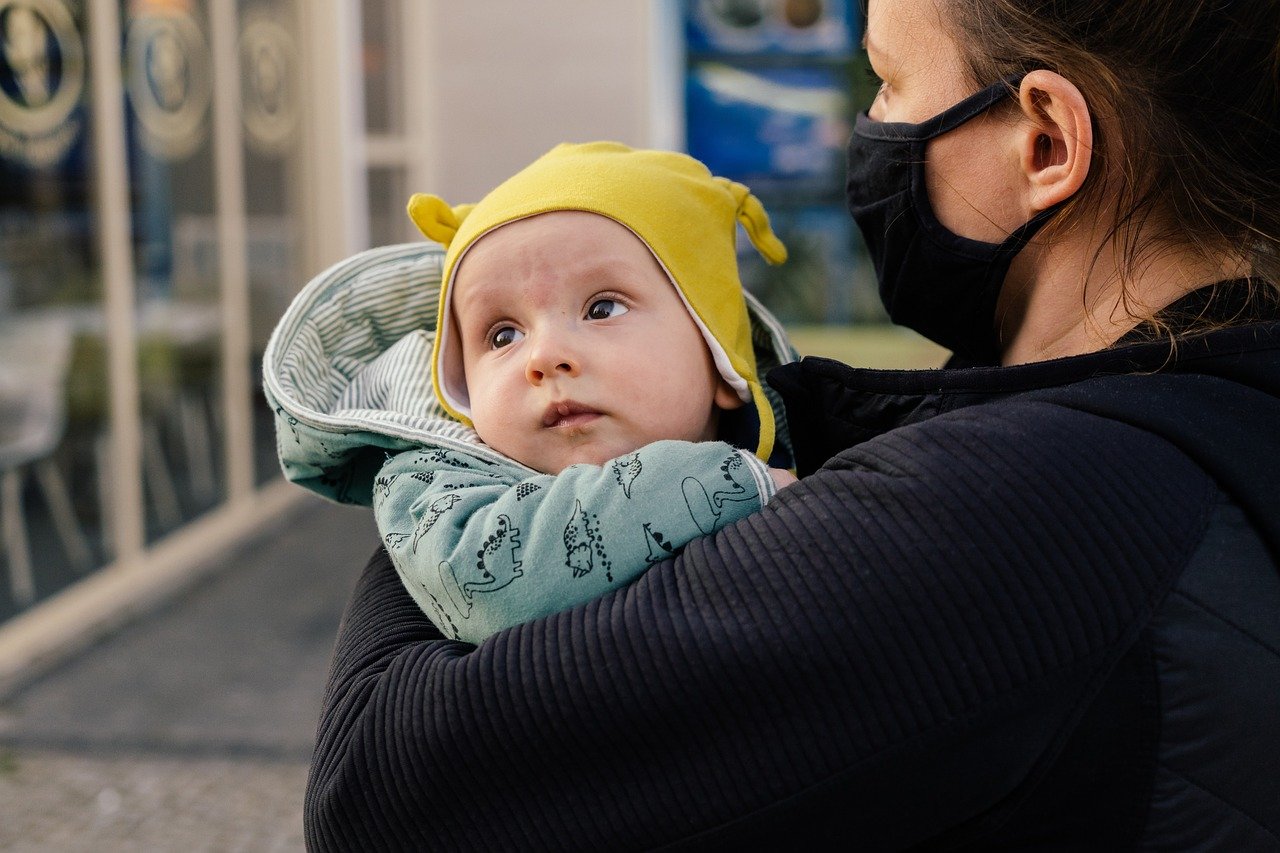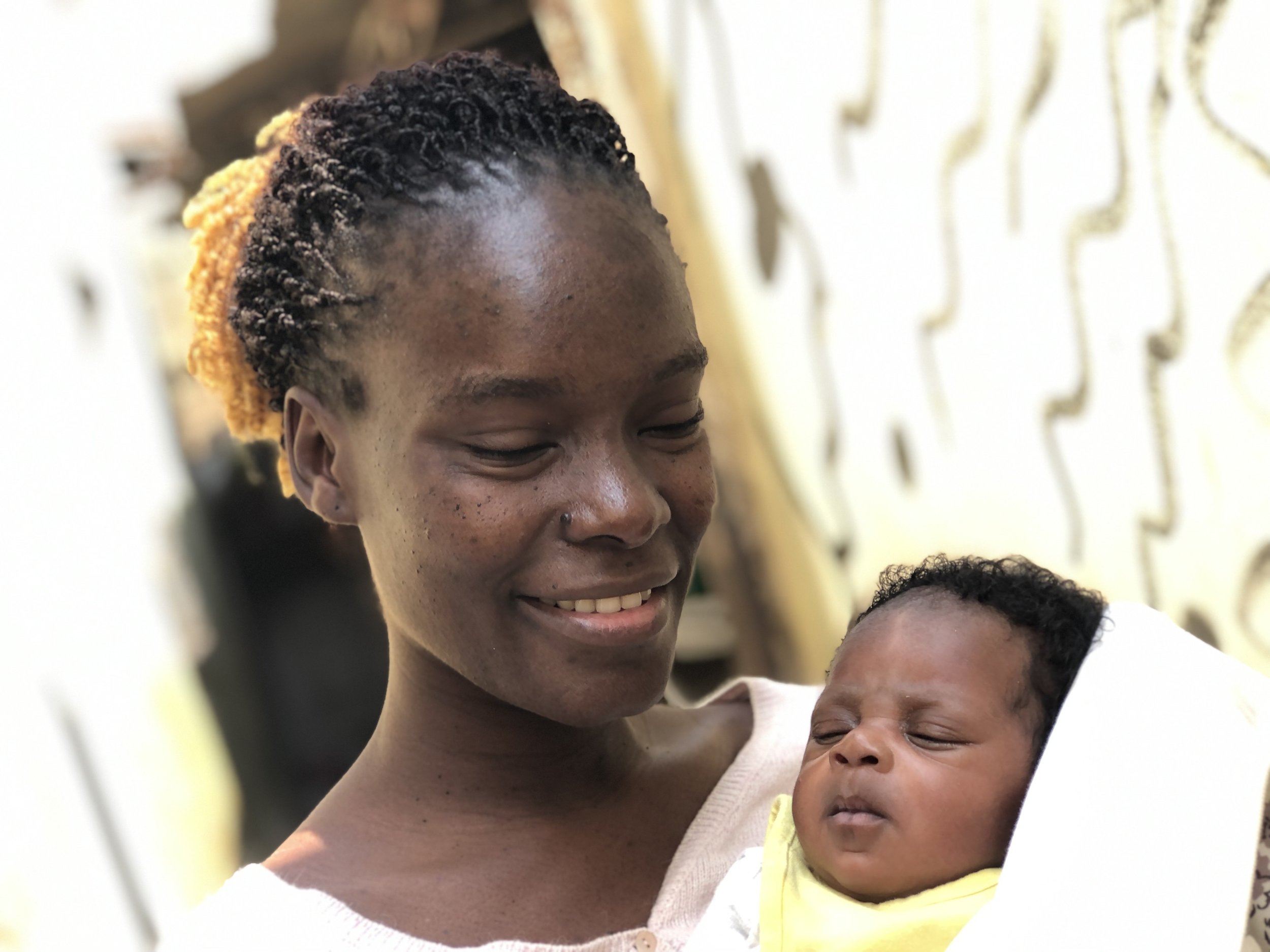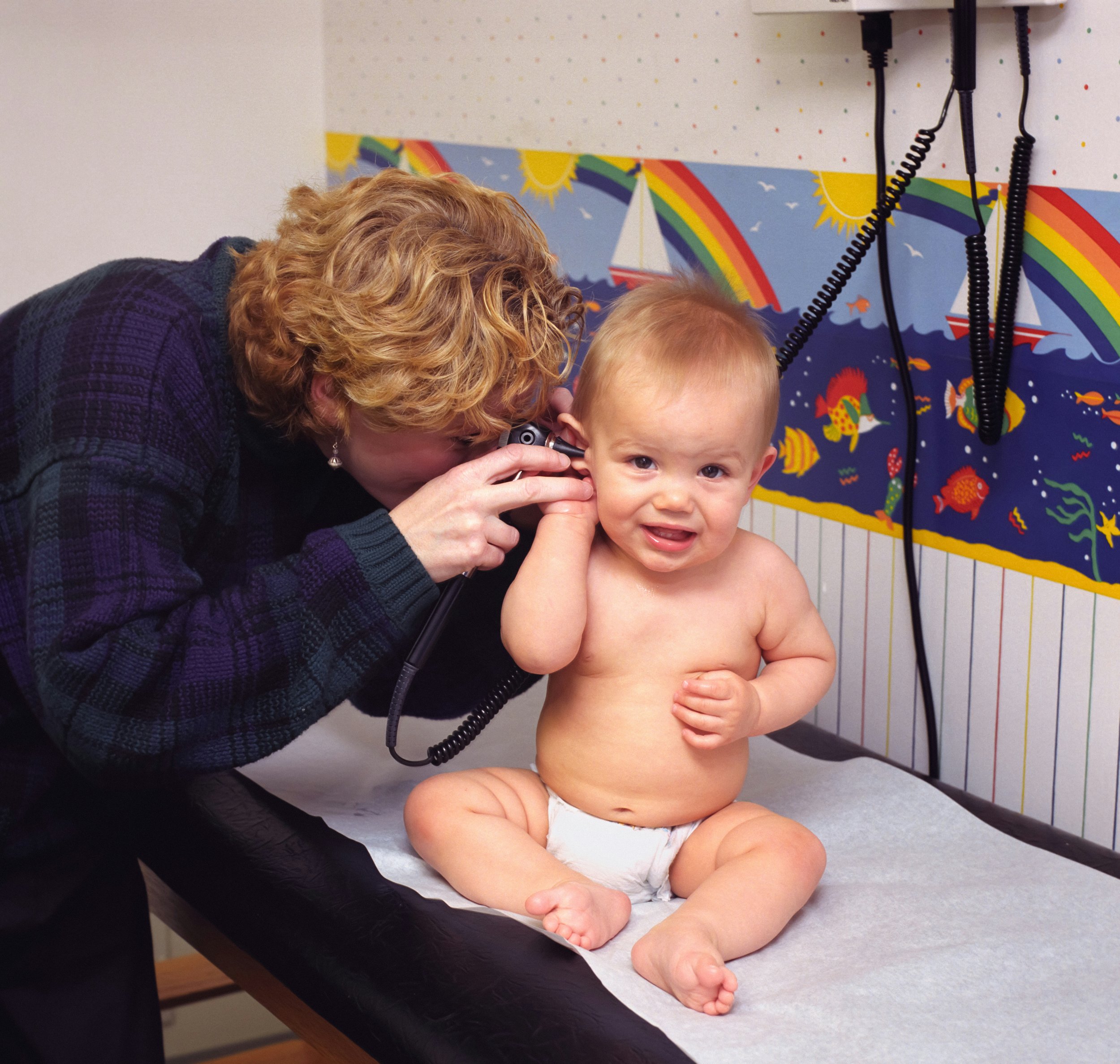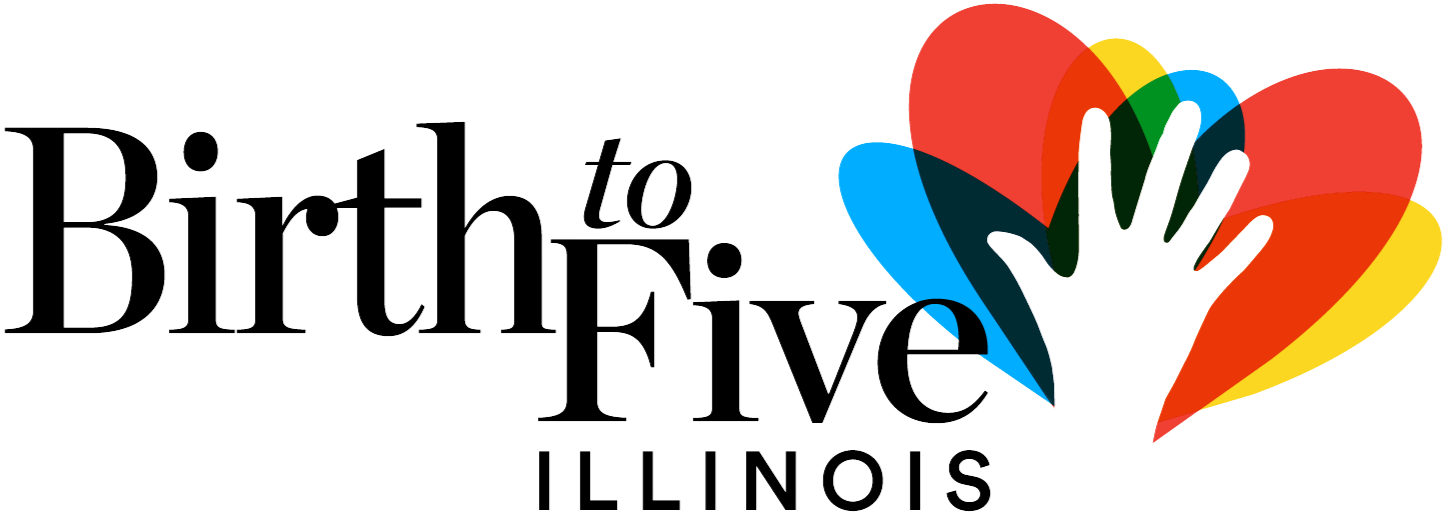
Meet the Recipients / Conozca a los Beneficiarios
Birth to Five Illinois Funding Recipients
Scroll and click below to learn more about the Birth to Five Illinois funding recipients and the great work they are doing within their communities!

Addison Partners for Play, Learning, and Education (APPLE)
FY26 DETAILS
$48,000
Aligning Coordinated Intake and referrals across systems.
Coordinating developmental screening events in collaboration with community partners.
Conducting outreach to families with children from birth to age five to share resources and engage/enroll in programming.
Creating and distributing resources and engagement kits for families with newborn babies.
Providing training opportunities for parents and caregivers to help them support child development.
Serving as a resource and thought partner for families and other ECEC Collaborations and community partners.

ARELI (Altgeld-Riverdale Early Learning Initiative)
FY26 DETAILS
$40,000
Conducting outreach to families with children from birth to age five to share resources and engage/enroll in programming.
Facilitating opportunities for parent/caregiver-led outreach strategies.
Serving as a resource and thought partner for families and other ECEC Collaborations and community partners.

Arcola Community and Economic Development (ACED)
FY24 DETAILS
Establish a new legal entity, including governance structure and board.
Launch Arcola Kids in Development Foundation and conduct community outreach.
Promote community awareness on the importance of early education.
Develop an Action Plan around the goals of: 1) development of a 0-3 prevention program, 2) encouraging the establishment of more licensed child care providers in the community, and 3) exploring the feasibility of a child care facility in our community.

Birth to Five Forum of South Cook County
FY23 DETAILS
Launch an Every Child Screened Campaign.
Screen 300 children ages 0-5.
Increase enrollment in early childhood programs by 25%.

Boone County Maternal Child Health (MCH) Advisory Council
FY26 DETAILS
$75,000
Aligning Coordinated Intake and referrals across systems. Conducting outreach to families with children from birth to age five to share resources and engage/enroll in programming.
Maintaining updated online and physical resource banks for families with children from birth to age five.
Creating and distributing resources and engagement kits for families with newborn babies.
Leading coordination between school districts, foundations, nonprofits, child care providers, and other business owners around ECEC issues.
Facilitating conversations around ECEC needs and developing actionable strategies for solutions.
Serving as a resource and thought partner for families and other ECEC Collaborations and community partners.

Bureau Henry Stark Early Childhood Collaboration
FY25 DETAILS
$12,500
Purchase postcards for distribution to saturate the three-county region.
Purchase and distribute engagement stations. Each engagement station will consist of an informational poster providing knowledge on early childhood development, a table, two chairs, books, and an activity for the children.
Distribute disposable activity placemats and crayons to local restaurants.

Carbondale Community Cabinet for Children and Youth
FY26 DETAILS
$45,000
Coordinating developmental screening events in collaboration with community partners.
Conducting outreach to families with children from birth to age five to share resources and engage/enroll in programming.
Maintaining updated online and physical resource banks for families with children from birth to age five.
Leading coordination between school districts, foundations, nonprofits, child care providers, and other business owners around ECEC issues.

Champaign County Home Visiting Consortium (CCHVC)
FY26 DETAILS
$72,000
Coordinating developmental screening events in collaboration with community partners.
Conducting outreach to families with children from birth to age five to share resources and engage/enroll in programming.
Translating Early Childhood Education and Care (ECEC) resource materials with cultural sensitivity into the common languages of local communities.
Maintaining updated online and physical resource banks for families with children from birth to age five.
Creating and distributing resources and engagement kits for families with newborn babies.
Providing training opportunities for parents and caregivers to help them support child development.
Serving as a resource and thought partner for families and other ECEC Collaborations and community partners.

Chicago Head Start Collaborative
FY24 DETAILS
Identify short- and long-term system infrastructure improvements that would support increased enrollment in community-based programs in Chicago.
Strengthen collaborative ways of working to ensure clearly defined roles, responsibilities, and shared goals and activities.
Increase public awareness of Chicago Head Start Collaborative, including the understanding of the scope and scale of services offered by member organizations and goals and activities of the collaborative.

Clay and Effingham County Childcare Collaborative
FY24 DETAILS
Create a Coordinated Intake System utilizing the IRIS software and offer education to agencies using the platform. This will be measured by having 40 agencies trained and using the IRIS platform.
All ECEC programs participating in the collaborative will be at 90% enrollment or higher within six months of implementing this approach and maintain that metric on a monthly basis thereafter (based on current staff available).
Marketing of programs with open slots will be distributed monthly via email to all Collaborative members. The Collaboration will also compare Illinois Early Childhood Asset Map (IECAM) data to local Early Childhood Education and Care (ECEC) enrollment data to look for targeted outreach in the community.
Staff will monitor and track when families are referred to a service. If there has been a referral in the system more than five working days, staff will contact the agency to see about access to the system and if additional information is needed.

Clay County 0-5 Advisory Board
FY26 DETAILS
$36,000
Coordinating developmental screening events in collaboration with community partners.
Aligning Coordinated Intake and referrals across systems.
Coordinating developmental screening events in collaboration with community partners.
Conducting outreach to families with children from birth to age five to share resources and engage/enroll in programming.
Creating partnerships with institutions of higher learning to address ECEC workforce challenges.
Maintaining updated online and physical resource banks for families with children from birth to age five.
Leading coordination between school districts, foundations, nonprofits, child care providers, and other business owners around ECEC issues.
Providing training opportunities for parents and caregivers to help them support child development.
Facilitating opportunities for parent/caregiver-led outreach strategies.
Facilitating conversations around ECEC needs and developing actionable strategies for solutions.
Serving as a resource and thought partner for families and other ECEC Collaborations and community partners.

Coles County Child Care Collaboration
FY25 DETAILS
$12,500
Create a legal, non profit entity that will identify challenges and potential solutions to the child care crisis in our community.
Establish a Board of Directors.
Promote community awareness on the importance of early child care and education by hosting outreach and education events, and create an action plan with goals of encouraging more licensed child care providers in the community.
Explore the feasibility of a child care center in the Coles County community, including the expansion of the Child and Family Life Education Center at Eastern Illinois University (EIU).

Collaboration for Early Childhood
FY26 DETAILS
$75,000
Coordinating developmental screening events in collaboration with community partners.
Conducting outreach to families with children from birth to age five to share resources and engage/enroll in programming.
Translating Early Childhood Education and Care (ECEC) resource materials with cultural sensitivity into the common languages of local communities.
Providing in-person interpretation during ECEC Collaboration meetings and events.
Creating partnerships with institutions of higher learning to address ECEC workforce challenges.
Maintaining updated online and physical resource banks for families with children from birth to age five.
Creating and distributing resources and engagement kits for families with newborn babies.
Providing training opportunities for parents and caregivers to help them support child development.
Serving as a resource and thought partner for families and other ECEC Collaborations and community partners.

Connect Home Visiting
FY26 DETAILS
$75,000
Conducting outreach to families with children from birth to age five to share resources and engage/enroll in programming.
Providing training opportunities for parents and caregivers to help them support child development.
Serving as a resource and thought partner for families and other ECEC Collaborations and community partners.
Providing training opportunities for parents and caregivers to help them support child development.

Crawford County Kids Association
FY26 DETAILS
$64,000
Coordinating developmental screening events in collaboration with community partners.
Conducting outreach to families with children from birth to age five to share resources and engage/enroll in programming.
Creating partnerships with institutions of higher learning to address ECEC workforce challenges.
Maintaining updated online and physical resource banks for families with children from birth to age five.
Creating and distributing resources and engagement kits for families with newborn babies.
Providing training opportunities for parents and caregivers to help them support child development.
Providing in-person interpretation during ECEC Collaboration meetings and events.
Maintaining updated online and physical resource banks for families with children from birth to age five.
Creating and distributing resources and engagement kits for families with newborn babies.
Providing training opportunities for parents and caregivers to help them support child development.
Serving as a resource and thought partner for families and other ECEC Collaborations and community partners.

DeKalb County Collaborative for Young Children (DCCYC)
FY26 DETAILS
$75,000
Aligning Coordinated Intake and referrals across systems.
Coordinating developmental screening events in collaboration with community partners.
Conducting outreach to families with children from birth to age five to share resources and engage/enroll in programming.
Providing training opportunities for parents and caregivers to help them support child development.
Facilitating conversations around ECEC needs and developing actionable strategies for solutions.

Early Childhood Alliance of Niles Township
FY26 DETAILS
$75,000
Conducting outreach to families with children from birth to age five to share resources and engage/enroll in programming.
Translating Early Childhood Education and Care (ECEC) resource materials with cultural sensitivity into the common languages of local communities.
Providing in-person interpretation during ECEC Collaboration meetings and events.
Leading coordination between school districts, foundations, nonprofits, child care providers, and other business owners around ECEC issues.
Providing training opportunities for parents and caregivers to help them support child development.

Early Childhood Coalition of the Illinois Quad City Area
FY26 DETAILS
$60,000
Aligning Coordinated Intake and referrals across systems. Providing in-person interpretation during ECEC Collaboration meetings and events.
Creating partnerships with institutions of higher learning to address ECEC workforce challenges.
Providing training opportunities for parents and caregivers to help them support child development.
Facilitating conversations around ECEC needs and developing actionable strategies for solutions.
Serving as a resource and thought partner for families and other ECEC Collaborations and community partners.

Early Childhood Forum of Central Illinois
FY25 DETAILS
$75,000
Aligning Coordinated Intake and referrals across systems.
Coordinating developmental screening events in collaboration with community partners.
Conducting outreach to families with children from birth to age five to share resources and engage/enroll in programming.
Providing training opportunities for parents and caregivers to help them support child development.
Facilitating conversations around ECEC needs and developing actionable strategies for solutions.
Serving as a resource and thought partner for families and other ECEC Collaborations and community partners.

Effingham County Early Childhood Coalition
FY26 DETAILS
$36,000
Aligning Coordinated Intake and referrals across systems.
Coordinating developmental screening events in collaboration with community partners.
Conducting outreach to families with children from birth to age five to share resources and engage/enroll in programming.
Creating partnerships with institutions of higher learning to address ECEC workforce challenges.
Creating and distributing resources and engagement kits for families with newborn babies.
Leading coordination between school districts, foundations, nonprofits, child care providers, and other business owners around ECEC issues.
Providing training opportunities for parents and caregivers to help them support child development.
Facilitating conversations around ECEC needs and developing actionable strategies for solutions.
Serving as a resource and thought partner for families and other ECEC Collaborations and community partners.
